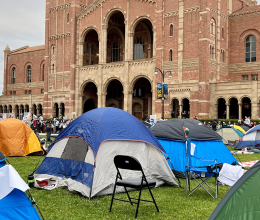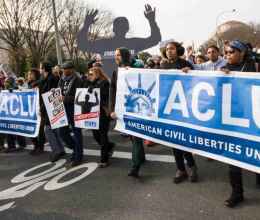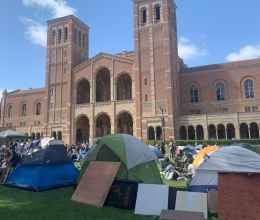In Violation of 1st Amendment, the Public has Been Denied Access to Court Proceedings
BAKERSFIELD — A cornerstone of our democracy is that court hearings and trials are not held in secret. But that’s what happening in Kern County Superior Court where proceedings — including jury trials — are being held out of public view.
In-person access was originally cut off because of the COVID-19 pandemic, but courts across the nation, including many in California, have provided video or audio feeds of court proceedings. In most cases in Kern County, however, even family members were turned away from courthouses and not given options for remote access.
It’s not just a hardship, it’s also unconstitutional.
Today, the American Civil Liberties Union Foundations of Southern and Northern California, and the First Amendment Coalition filed a lawsuit in U.S. District Court in Fresno against Kern County Superior Court officials for denying access to court proceedings in violation of the First Amendment to the U.S. Constitution.
The suit comes at a time when many businesses in Kern County, including bowling alleys and hair salons, have been permitted to reopen. Still, Janie Randle, who is one of several plaintiffs in the lawsuit, has been denied access to court hearings in Bakersfield concerning her son, accused of attempted murder.
“The Bakersfield mall is now open, as are some casinos in the county,” Randle said in a declaration for the lawsuit. “I do not understand why it is okay to open up casinos but we cannot go into the courthouse. That fact that people can gamble but I can’t watch my son’s court hearings is not right.”
Another plaintiff, Tanisha Brown, was turned away when she tried to observe a June 10 hearing in the case against her son, arrested during a rally in Bakersfield protesting police brutality against Black people. Others also at the courthouse to support her son — who was beaten so badly during the rally that he was hospitalized — were likewise refused entry.
“During this period of intense police violence and misconduct,” Brown said in her declaration, “it is really important that I’m in the court to make sure the police and prosecutors don’t railroad my son, a young Black man who’s never been in trouble. I want to make sure that he doesn’t accept charges or a plea deal that he shouldn’t accept, and that the court doesn’t take the opportunity of an empty courtroom to throw excessive charges at him.”
The access restrictions began on March 23 when the Kern County Superior Court issued a standing order barring the public from attending proceedings. Even when the court announced on May 22 that it would begin summoning jurors for trials, the court said that the “standing order restricting courthouse entry is still in place.”
Earlier this month, the court said members of the public would be allowed to attend hearings or be provided with audio streams. But implementation of that policy has been highly erratic at best, and for the most part family members and other observers were still turned away and denied alternatives. Signs were still up in courthouses, declaring, “If you are not an attorney, party, defendant, or subpoenaed courthouse witness, you should not enter the courthouse and you should return home.”
“Even one secret proceeding is one too many,” said Kathleen Guneratne, senior staff attorney at the ACLU NorCal. “Kern County should immediately stop denying family members their First Amendment right to attend court hearings. No one can have confidence that a court proceeding is fair if no one can watch.”
The lawsuit asks a federal judge to require the Kern County Superior Court to allow in-public access consistent with social distancing and a viable alternative method for remote access.
“This is no time for government secrecy, especially in the criminal justice system," said First Amendment Coalition Executive Director David Snyder. "Kern County Superior Court must find a way to let the public back in.”
Read the lawsuit here: https://www.aclusocal.org/sites/default/files/aclu_socal_v_harber-pickens_20200626_complaint.pdf
####





